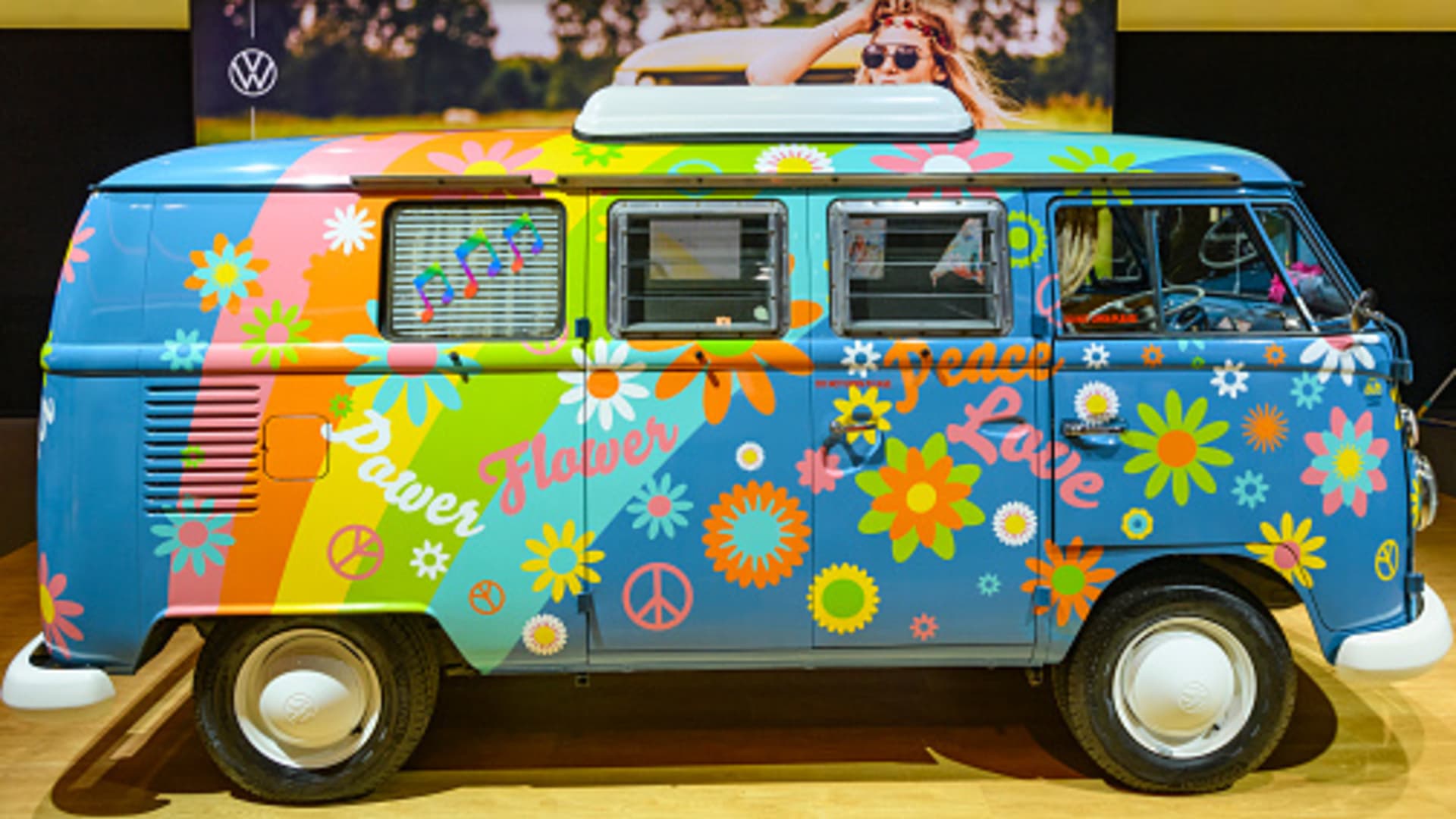As Volkswagen looks to resurrect the Scout brand in the United States, CEO Herbert Diess has shed light on the decision, saying it represents an opportunity for the German auto giant to “become much more American.”
VW announced plans to re-launch the Scout as a fully-electric pick-up and “rugged” SUV last Wednesday, with prototypes due to be revealed in 2023 and production planned to begin in 2026.
In the same announcement, the company said the vehicles would be “designed, engineered, and manufactured in the U.S. for American customers.”
“The United States is our biggest growth opportunity,” Diess, who was speaking to CNBC’s Annette Weisbach last week, said.
He went on to explain why the automaker was targeting the fiercely competitive American market.
“We are still very niche, very small, with about 4% market share [in the country],” he said. “We want to get up to 10% market share towards the end of this decade.”
Diess stressed that the firm had momentum, was profitable and “really making good progress with the electric cars.”
These vehicles include the fully electric ID Buzz, which is inspired by the T1 Microbus or “hippie” van. European versions of the ID Buzz are set to go on sale this year, with sales of an American model starting in 2024.
VW hopes that the introduction of the Scout and ID Buzz will continue its tradition of introducing iconic designs to the U.S. market. Over the years, these have included the Beetle and various iterations of the Microbus, such as the one pictured above.
The Scout’s history dates back to the 1960s, when International Harvester — originally an agricultural company, now known as the Navistar International Corporation — started development. Today, Navistar is part of the Traton Group, a subsidiary of the Volkswagen Group.
Production of the Scout ceased in 1980, but Volkswagen’s decision to re-launch it, and Diess’ comments, provide some clues to its strategy going forward.
“If we really want to become relevant in America, we have to look at the other segments,” he said. “And pick-ups, big SUVs, are very, very big in America.”
Diess went on to describe Scout as a “beloved brand in the United States. So it’s a good opportunity for us to become much more American.”
Asked if the Scout pickup would be solely for the U.S. market, he was non-committal. “I wouldn’t say ‘entirely dedicated’ but first and foremost … it’s an American product.”
“It will be an American product for American customers, designed for the American environment. Will it be sold outside? Maybe, later to be decided,” Deiss added.
VW is planning to set up a separate and independent company this year to design, engineer and manufacture the Scout pick-ups and SUVs for the U.S. market.
Volkswagen’s focus on electric vehicles is a world away from the “dieselgate” scandal that rocked it in the 2010s. Today, its electrification plans put it in direct competition with long-established automakers like GM and Ford, as well as relative newcomers such as Tesla.
On the company’s overall prospects in the U.S. going forward, Diess was bullish.
“We’re building up capacities in the United States … later this year, around August, ID 4 production will start in our Chattanooga facilities,” he said.
“We have programs for Audi and Porsche to increase their market share and … we will see some more products, electric products, being produced in America, for America.”
